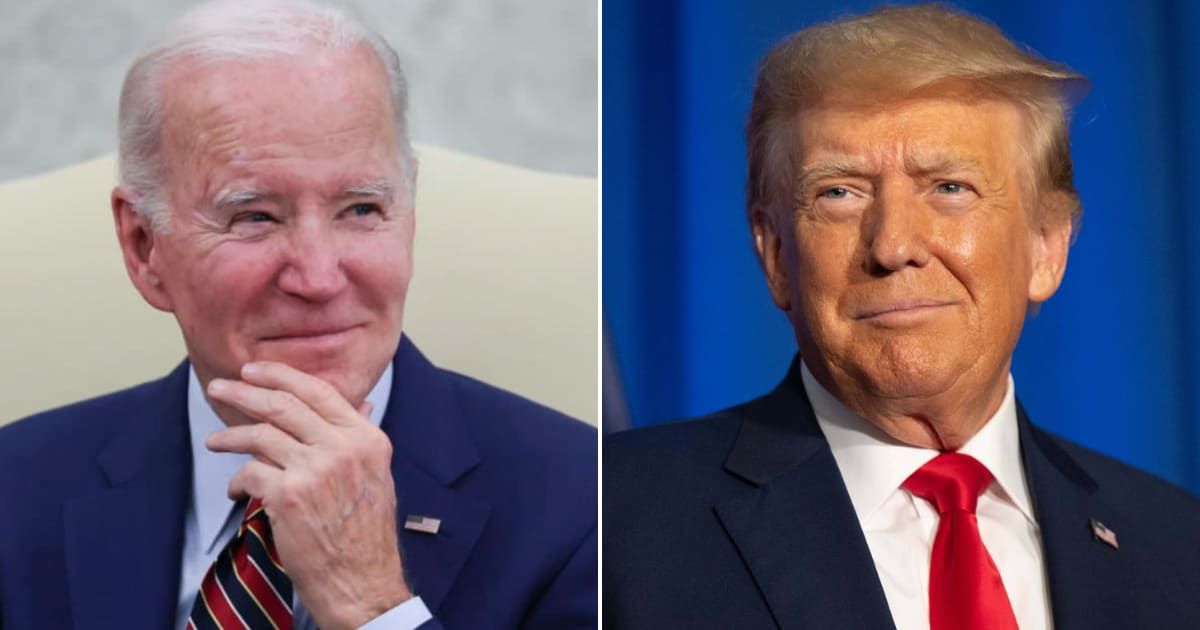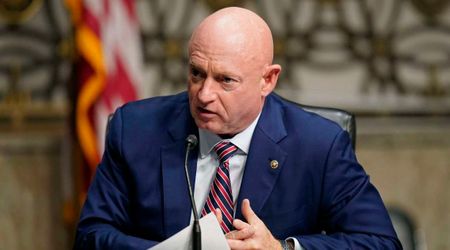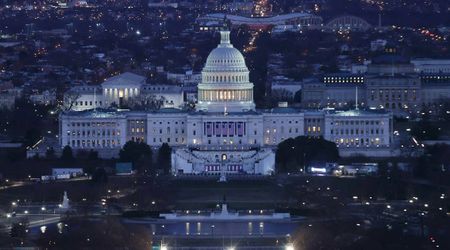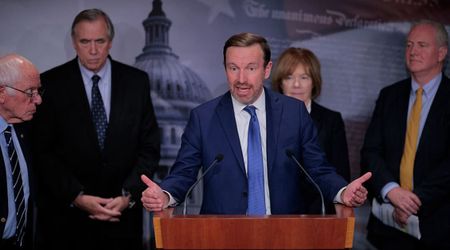Michigan primaries: 5 takeaways from Joe Biden and Donald Trump’s wins as they inch closer to a rematch

Key observations from Biden and Trump's wins in Michigan primary

LANSING, MICHIGAN: While Joe Biden and Donald Trump won comfortable victories in their respective party's primaries, the results hint at the potential challenges each candidate will face to secure Michigan's crucial swing state status in November. Surprisingly, Michigan's Democratic primary saw an "uncommitted" vote, highlighting simmering discontent over President Biden's stance on the conflict between Israel and Hamas conflict in Gaza and raising questions about the impact on his reelection chances. Despite Trump's clear victory in the Republican primary, support for Nikki Haley has shown that some GOP voters still doubt whether they will support the former president for another term in the general election. Here are some key takeaways from the Michigan primary.
1. Biden and Trump score easy victories in Michigan primary

Michigan has emerged as the last major battleground for the primaries before Super Tuesday. It is considered a key indicator for the pivotal November general election in one of the nation's few remaining swing states. Joe Biden's consistent victories in South Carolina, Nevada, and New Hampshire, where he prevailed with his mail-in ballot campaign, underscored his enduring strength, particularly evident in Michigan, a state he returned to the Democratic column in 2020. Donald Trump's sweeping triumphs in the early state contests, including South Carolina, despite being the home turf of his rival Nikki Haley, positioned him as the undeniable favorite ahead of Super Tuesday's contests across 15 states and one territory. Once part of the coveted 'blue wall' alongside Wisconsin and Pennsylvania, Trump's 2016 Michigan win was a bold prediction that came true. Despite its significance, only 16 of Michigan's 55 presidential delegates are determined by primary results, with the majority allocated during a March 2 convention, where Trump's anticipated dominance, fueled by grassroots activism, will shape the distribution of the remaining 39 delegates.
2. ‘Uncommitted’ Democrats express anger over Gaza

Michigan has emerged as a hotbed of Democratic discontent over the White House's handling of the Israel-Hamas conflict, fueled by its substantial Arab American population. During the Democratic primary, some voters expressed their frustration by marking "uncommitted" on their ballots. While Biden still secured a significant victory, the turnout for "uncommitted" signals a potential challenge in a state he won by less than 3 per cent in 2020. The Listen to Michigan campaign, which spearheaded the "uncommitted" movement, aimed for 10,000 votes, drawing parallels to Trump's slim margin of victory in 2016. However, to pose a serious threat to Democratic prospects in November, "uncommitted" votes would need to reach 20-30 per cent, according to pollster Richard Czuba. Most of these votes are anticipated to come from areas like Dearborn and Hamtramck, where Arab Americans make up a significant portion of the population, potentially signaling dissatisfaction within Biden's base.
3. Nikki Haley warns Donald Trump's Michigan win a ‘warning sign’

In recent weeks, Haley has been making the case that her vote share reflects a vulnerability for the leading candidate in her party. Despite securing 43 per cent in New Hampshire and nearly 40 per cent in South Carolina, she argues that these numbers expose Trump's inability to win the general election, considering his status as a de facto incumbent. The Michigan primary outcome reinforces this notion, indicating that Haley's vote share won't approach 40 per cent in future contests, though she's not hitting rock bottom just yet. "Let this serve as another warning sign that what has happened in Michigan will continue to play out across the country," remarked Haley's spokesperson, Olivia Perez-Cubas. It's worth noting that New Hampshire and South Carolina were expected to be Haley's strongholds, given the presence of independent voters in the former and the fact that the latter is her home state. However, the results in Michigan and polling data for the upcoming Super Tuesday states suggest a rather diminished appetite for an alternative candidate.
4. Nikki Haley changes the narrative from 'I am going to win'

In recent days, Haley's messaging has shifted noticeably - moving away from arguing the winnability of the race and instead focusing on the potential detriment Trump poses to the party. This sentiment was amplified as results from the Michigan primary streamed in. When CNN's Dana Bash asked her whether the party had shifted towards Trump, Haley acknowledged the possibility, stating, "It is very possible. We are giving them an option." She added, "What I am saying to my Republican Party family is, we are in a ship with a hole in it, and we can either go down with the ship and watch the country go socialist left, or we can see that we need to take the life raft and move in a new direction." While Haley intends to stay in the race through Super Tuesday as promised, "giving them an option" does not equate to “I’m going to win." Her current objective seems to be more about making her point and potentially positioning herself to say "I told you so" if Trump loses, perhaps laying the groundwork for another campaign in the future.
5. Joe Biden easily bested challenger Rep Dean Phillips, D-Minn

In an almost inevitable turn of events, Biden's actual primary challenger, Phillips (D-Minn), found himself losing out to an unexpected opponent - "uncommitted." While Phillips had put up a valiant effort, the "uncommitted" campaign had garnered significantly more momentum, eclipsing his bid for the nomination. While Phillips may still hope to emerge as an alternative to Biden in other states, the recent outcome in Michigan casts doubt on his prospects. It appears that he may not be much of a contender after all. Shockingly, he risked finishing fourth, even behind Williamson, who had suspended her campaign three weeks earlier.










